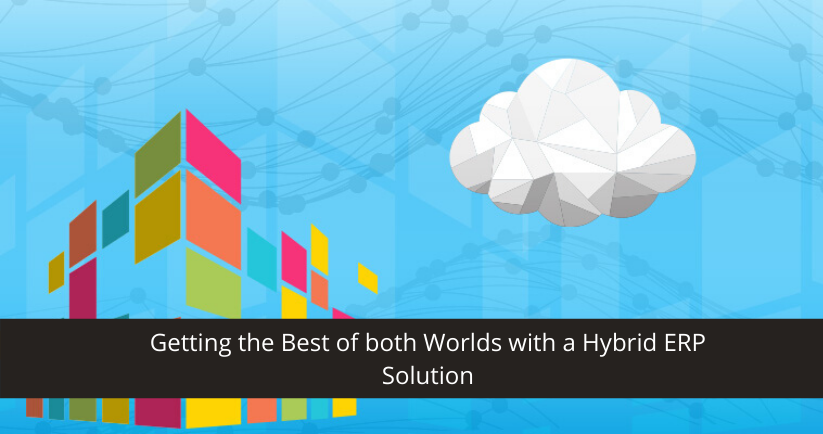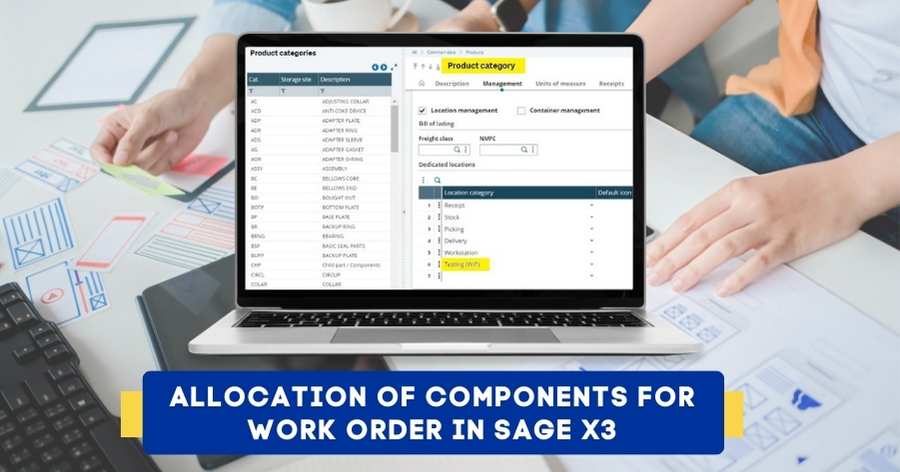When it comes to Enterprise Resource Planning (ERP), many companies tend to consider only two options, either on-premise or cloud-based solution. In fact, you can also opt for hybrid ERP software for your business. On-premise solutions are well known for their reliability, whereas, cloud-based ERP solutions are easy to manage, implement and get abroad. In addition, cloud based ERP software requires low capital investment and offers hassle-free infrastructure upgrades.
Though both these solutions have their takers, this is where hybrid ERP solutions step in to the rescue for a number of businesses. This article talks about the possible advantages that businesses can reap by integrating on-premise and cloud based ERP systems creating a hybrid effect.
Read also: Integrating ERP with Blockchain Technology for Efficient Collaboration
What is a Hybrid ERP Solution?
The “best of both worlds” approach perfectly resembles a Hybrid ERP. It has the potential to become world class cloud based software to augment on-premise solution. Hybrid ERP comes with much lower implementation costs compared to an on-premise solution whilst broadening the capabilities of a cloud-based ERP solution.
Hybrid ERP aims at highly influenced business areas and unique business processes. It gives a rock-solid base of cloud applications as well as on-premise functionalities. Though the hybrid model uses two strategies at a time, it has minimum risk. The reason behind this is trustworthy on-premise ERP that works reliably whereas cloud-based ERP adds in more features.
Integrating On-premise ERP System with Cloud-based ERP solution:
Extreme customization has made on-premise solutions time-warped. Businesses operating in distribution and manufacturing industries that have adopted on-premise solutions in early years, which were ahead of the competition at that time, are now facing the drawbacks of customization. This is because on-premise ERP systems lack to provide the agility and responsiveness, that a cloud-based ERP is capable of providing.
On-premise solutions that appeared to be reliable years ago are fast turning out to be obsolete these days. Some expensive ERP applications make it difficult to adapt business-transforming needs. Thus, integrating on-premises ERP systems with cloud-based solutions can improve an organisation’s agility and customising options. This integrated fusion or combinational model of on-premise and cloud-based solution is known as Hybrid ERP solution.
Benefits of a hybrid approach:
Hybrid ERP solution is flexible with low implementation costs. Industry sectors like digital media, business and professional services can be obliged in a much better way by hybrid ERP solutions.
Hybrid ERP is also known as two-tier model because of the bimodal combination of core on-premise ERP features and cloud-based ERP features. For example, ERP and CRM integration can greatly improve an organisation’s operational performance. A modern enterprise needs a modular application and multi-source environment like hybrid ERP, as it easily integrates with other enterprise technology and business process systems.
To know more about how ERP Software and its integration with other enterprise technology applications can help your business scale, feel free to get in touch with us here. You can also drop us a mail at sales@sagesoftware,co.in for a free consultation.
Disclaimer: All the information, views and opinions expressed in this blog are those of the authors and their respective web sources and in no way reflect the principles, views or objectives of Sage Software Solutions (P) Ltd.





